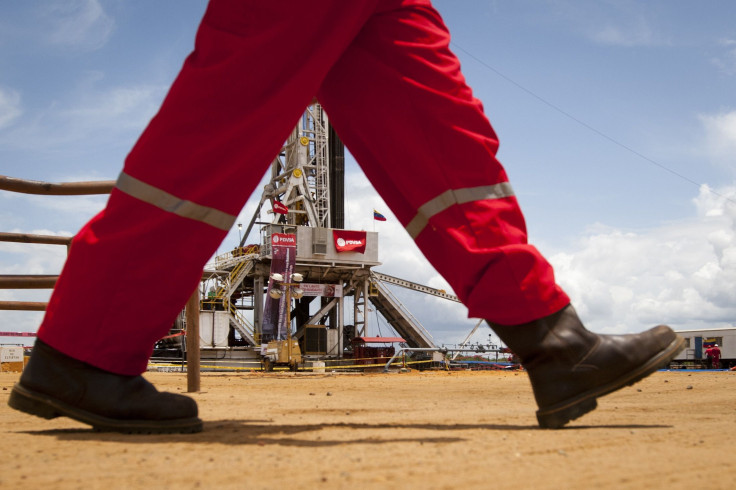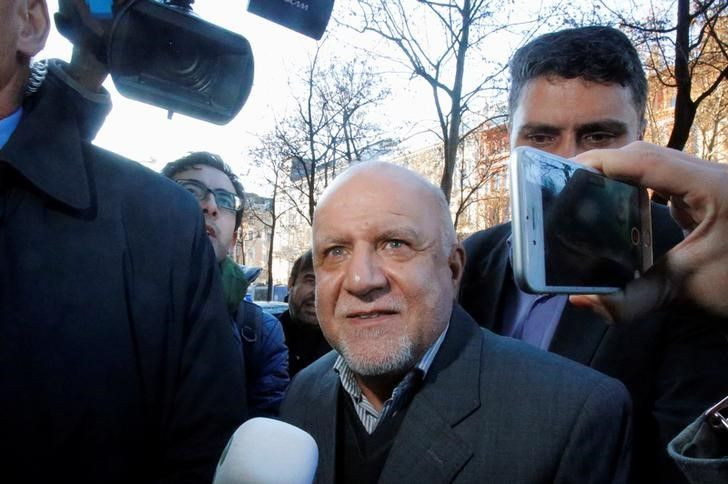OPEC Meeting: Are The Cartel's Days Numbered? Chances Of Production Cut Deal Appear Slim As Individual National Interests Trump Unity

OPEC, which for decades controlled global oil production, appeared to be losing its grip ahead of Wednesday’s scheduled meeting in Vienna to freeze or reduce output and prop up prices.
Some members of the Organization of Petroleum Exporting Countries have been trying to convince the rest to cut production to boost oil prices, which are half of what they were in 2014, currently hovering in the mid-$40 a barrel, the result of an oil glut.
Current price levels are good news for airlines, truckers and drivers but bad news for alternative energy startups, shale oil and gas operations, and economies dependent on oil prices to fund their budgets.
Any price increase, however, could come at the cost of market share as Asian buyers, who use a third of the world’s supply, look elsewhere, Reuters reported.
"For us, the current price levels look to be appropriate for both sides [buyers and producers]," said Eiichiro Kitahara, executive officer at Japanese refinery TonenGeneral Sekiyu.
"Our company aims to avoid depending highly on certain suppliers, and we may seek new [supply] opportunities."
Russia already has become China’s top oil supplier, displacing Saudi Arabia, Reuters said.

Algeria has been working hard to convince Iran, which is trying to make up for years of sanctions to cut its oil income, and Russia, a nonmember of the oil cartel invited to participate, to agree to a production deal, Bloomberg reported. Russia, however, isn’t even planning to attend Wednesday’s meeting.
“At current prices we won’t be able to survive two years [if prices don’t rise],” Algerian Energy Minister Noureddine Boutarfa told Bloomberg. “There are some billions in foreign reserves but they risk to melt like snow in eight to 10 months if the price of the barrel stays as it is.”
OPEC hasn’t been able to hold the line on production for years. Its last successful deal to cut production was eight years ago. The target Wednesday is to cut output by 1.2 million barrels a day from October levels, to bring production down to 32.5 million to 33 million barrels a day.
The oil ministers could impose production quotas on each member nation and cut deals for exemptions to keep participants happy enough to sign on. They also could fail to reach any deal, sending oil prices plummeting to less than $40 a barrel, or just postpone a decision.
Iranian Oil Minister Bijan Namdar said Tuesday his country isn’t willing to cut production while Saudi Arabia, which currently is producing a record 10.6 million barrels a day, has indicated it won’t agree to cuts unless all OPEC members, except Libya and Nigeria, cooperate, Bloomberg reported. Venezuela, where the economic situation has reached catastrophic proportions, and Iraq, which is battling the Islamic State group, also have asked for special consideration.
Platts reported Russian President Vladimir Putin and Iranian President Hassan Rouhani agreed to coordinate with each other. Putin said last month he would like to see production levels frozen rather than cut.
Saudi Arabia has been slow to come to the idea of a production cut, given its vast cash reserves. The position has created pressure on other producers without the wherewithal to ride out low prices. The nationalism and anti-colonial sentiments that led to OPEC’s birth in the 1960s have waned, and the cartel has been unable to mount a successful campaign since the 1970s, Oilprice.com noted.
"What I hear is kind of crazy. The fear in town is it's Doha redux. Everybody's worst nightmare," Helima Croft, head of global commodities strategy at RBC, told CNBC, referring to the meeting in Doha, Qatar, in April that failed to produce a freeze agreement when Saudi Arabia and Iran started feuding.
"Once again, it seems [Saudi Deputy Crown Prince Mohammed bin Salman] has decided Iranian participation in a cut is mandated. If he sticks to that position, it doesn't lift off [Wednesday]. I think a cut was never on the table for Iran. Is this just a hard-line tactic? Are they trying to get the maximum concession?" Croft said.
Iran reportedly is demanding Saudi production be cut back to 9.5 million barrels a day, but the Saudis are balking.
Reaching a deal may not be the answer, however.
"If prices are pushed up towards $60 we will see within nine months a strong response from U.S. shale production putting oil in the market," Fatih Birol, executive director of the International Energy Agency, told Reuters.
© Copyright IBTimes 2025. All rights reserved.





















